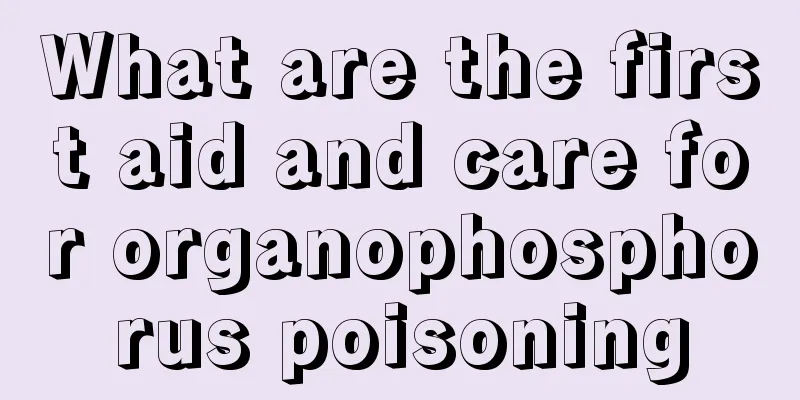What are the first aid and care for organophosphorus poisoning

|
The so-called organophosphorus poisoning is the most common pesticide poisoning in life. After the symptoms of poisoning appear, you must be sent to the hospital for treatment in time. In the hospital, gastric lavage or vomiting are often performed, and patients with difficulty breathing must actively receive oxygen therapy. Generally speaking, after organophosphorus poisoning, if you are sent to the hospital for rescue, the success rate of rescue is generally around 96%. Organophosphorus pesticide poisoning is a common clinical emergency. It refers to the situation where organophosphorus pesticides enter the human body through the respiratory tract, digestive tract or skin, inhibiting the activity of cholesterase, causing it to lose the ability to inactivate acetylcholine, leading to a large accumulation of acetylcholine and a series of poisoning symptoms. If not treated in time, it can easily cause death. Therefore, effective rescue treatment and appropriate nursing measures are the key to successful rescue. Take off contaminated clothing immediately and wash the skin with clean water or soapy water. If it is an oral poisoning, unless there is obvious upper respiratory tract bleeding, gastric perforation, etc., the stomach should be thoroughly and effectively washed to prevent inhalation of the poison. For poisoned patients, maintaining respiratory function is the most important thing, and special attention should be paid to clearing respiratory secretions. If the secretions are viscous and difficult to suck out, take emergency measures in time, and perform endotracheal intubation or tracheotomy when necessary. If breathing is difficult, give oxygen inhalation. When breathing is weak or stopped, immediately apply pressurized oxygen until breathing is restored. During the treatment, the breathing condition and lung signs should be closely observed, and airway antispasmodics should be given promptly and accurately according to the doctor's orders to relieve airway spasms. At the same time, the patient's head should be tilted to one side to prevent secretions from being accidentally inhaled into the airway and causing suffocation. After organophosphorus poisoning, when a patient is sent to the hospital for emergency treatment, the doctor will often actively observe the patient's body temperature, pulse and blood pressure, and also observe whether there are any changes in the patient's pupils. Some patients will experience vomiting after organophosphorus poisoning. At this time, it is necessary to analyze the vomitus, especially the specific components of the pesticides in the vomitus, which will be helpful for rescuing the patients. |
<<: Can cucumber shrink pores?
>>: What are the self-help methods for swimming cramps
Recommend
Side effects of photon bed on human body
The bed is really important to us. When we come b...
Biological treatment options for nasopharyngeal carcinoma
For cancer, the main treatment method is nothing ...
Maintaining a good attitude can effectively prevent brain cancer
Brain cancer is a serious malignant tumor clinica...
There is a lump on my chest, what's going on?
In life, most female friends have a worry about t...
Is the digital meridian massager harmful to humans?
Recently, digital meridian massagers have been we...
Can I eat while doing a urine routine test?
Urinalysis is a very common test. It can detect m...
How to care for vitiligo? Four aspects should be paid attention to!
Vitiligo is a skin disease that can occur in any ...
How to tell if a mango is ripe
Mango is a fruit that is loved by many people. Wh...
Can I detect if my period is one day late?
Women who are preparing to have a baby do not wan...
What should patients with esophageal cancer pay attention to in their diet
A common symptom of esophageal cancer patients is...
What are the dietary precautions for ovarian tumors
The eating habits of ovarian tumor patients are v...
Is using an electric oven harmful to the human body?
With the continuous development of society, more ...
Which is better, tampons or sanitary napkins
Which one is better, tampons or sanitary napkins?...
Symptoms of cervical cancer in the late stage often include vaginal bleeding
Symptoms of cervical cancer include vaginal bleed...
What harm does acetone do to the human body
Acetone is a chemical product generally used in i...









